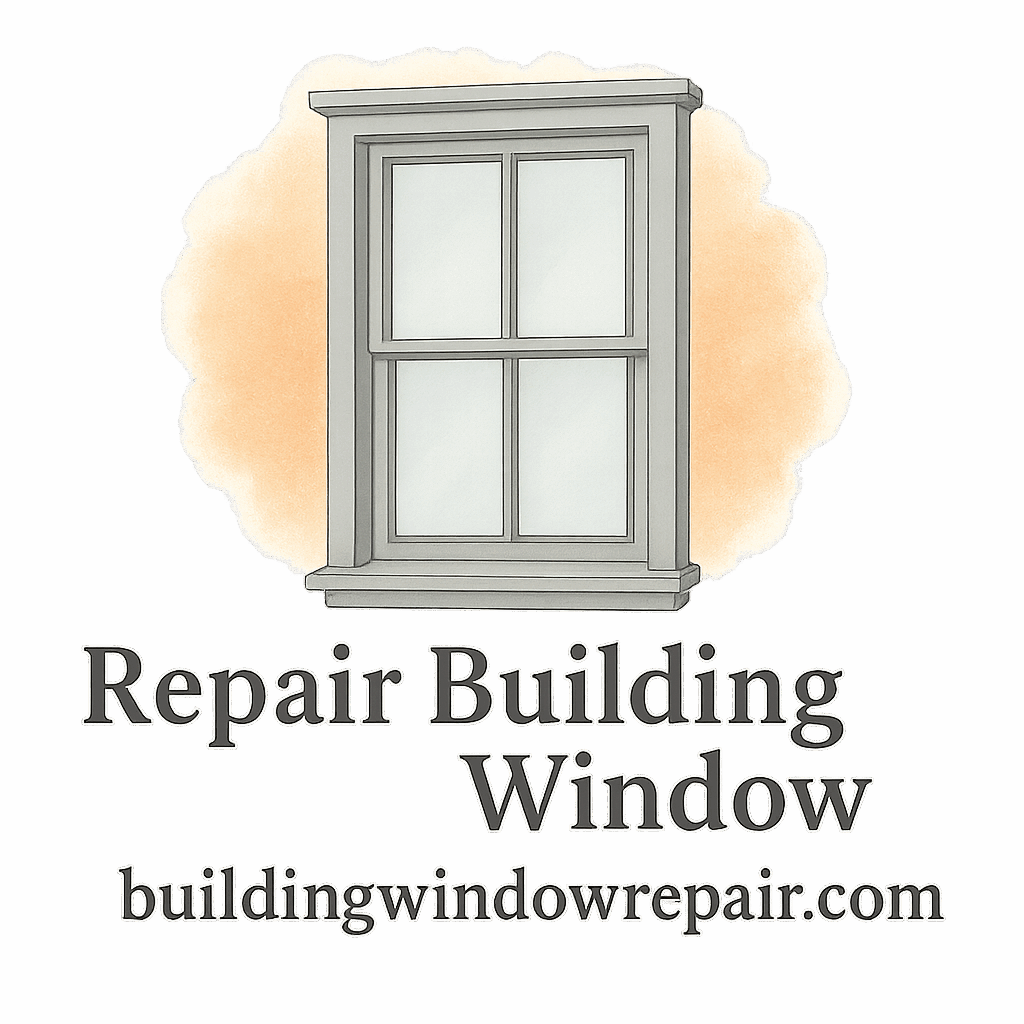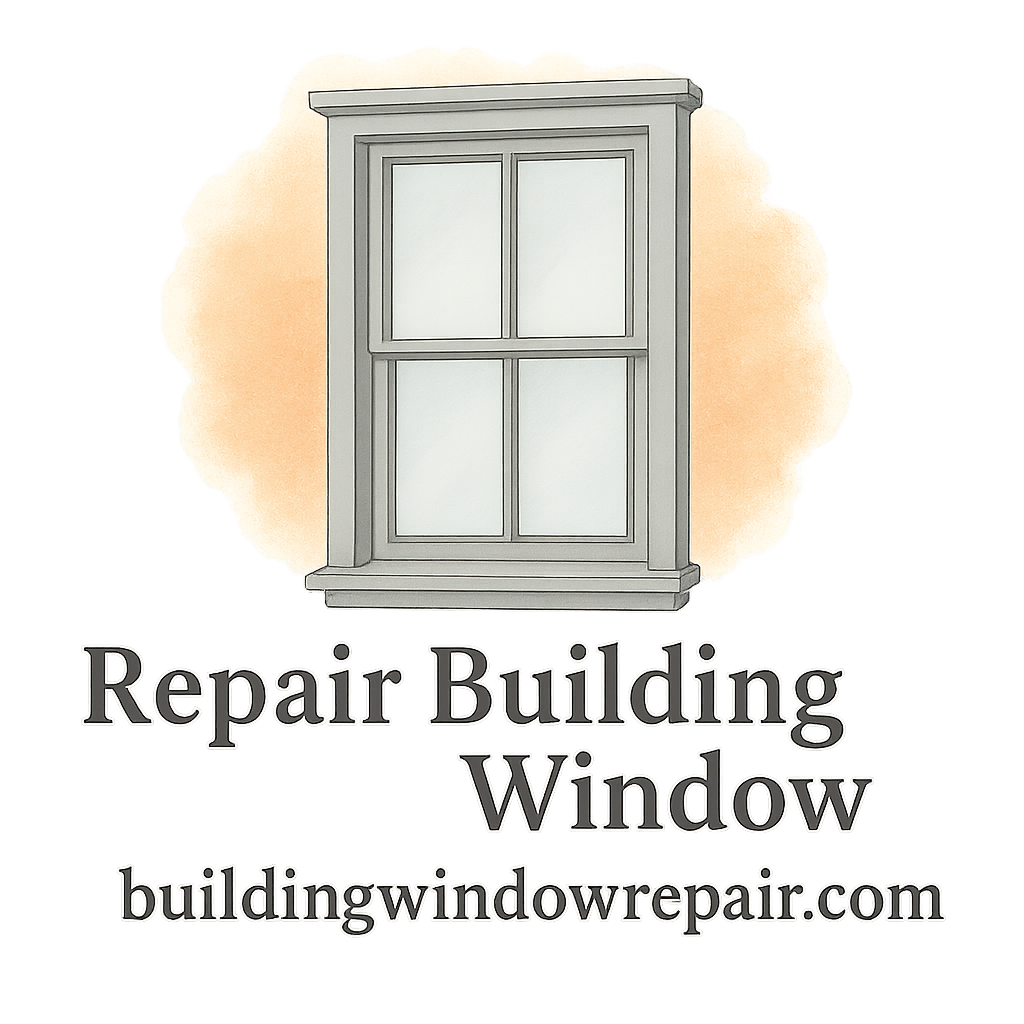Introduction: Why Window Repair Shouldn’t Wait
When was the last time you checked your building’s windows closely? For many property owners, windows often go unnoticed—until something major goes wrong. The truth is, your building windows are more than just a way to let in sunlight. They protect you from harsh weather, boost energy efficiency, and even play a role in safety compliance. Ignoring early signs of damage can cost you big in repairs, energy bills, and even legal issues.
In this guide, we’ll walk through the 12 key signs that you’ll need building window repair soon. If you notice any of these red flags, don’t brush them off—your comfort, safety, and wallet depend on it.
Sign #1: Drafts and Cold Air Seeping In
Ever feel a sudden chill near your window even when it’s closed? That’s a sign of air leaks.
How to Test for Drafts
An easy trick: hold a lit candle or lighter near the window edges. If the flame flickers, air is sneaking in.
Why Ignoring Drafts is Costly
Not only does this make your space uncomfortable, but it also sends your energy bills through the roof. Addressing drafts with proper airtight sealing or repairs can save you hundreds annually.
Sign #2: Condensation Between Glass Panes
Foggy or misty windows? That’s a telltale sign of failed seals.
Causes of Foggy Windows
Double or triple-pane windows often develop condensation when their insulating seals break down.
Repair vs. Replacement Solutions
Sometimes resealing works, but if the glass unit is compromised, replacement might be necessary. Learn more about repair techniques to see which route fits your case.
Sign #3: Difficulty Opening or Closing Windows
If you have to wrestle your window open or shut, that’s a problem.
Common Causes of Jammed Windows
- Warped frames
- Rusted hinges
- Broken locks
Safety Concerns of Stuck Windows
In emergencies, like a fire, you’ll want windows to open easily. Regular maintenance can prevent this safety hazard.
Sign #4: Visible Cracks in Glass
Cracks are never harmless.
Small Cracks vs. Structural Damage
Hairline cracks may seem minor, but they spread quickly and weaken the glass.
Immediate Repair Options
Temporary fixes like clear sealants can help, but professional repair ensures long-term safety. Explore glass repair methods before it worsens.

Sign #5: Rising Energy Bills
Notice your utility bills creeping up? Your windows may be to blame.
How Windows Impact Energy Efficiency
Old or damaged windows let heat escape in winter and cool air leak in summer.
Sealing and Insulation Solutions
Investing in energy-saving window upgrades can cut costs and improve comfort.
Sign #6: Water Leaks Around Frames
Moisture near your windows is a red flag.
Detecting Early Water Damage
Look for stains, bubbling paint, or musty odors.
Preventing Mold and Structural Issues
Ignoring leaks invites mold growth and expensive wall repairs. See safety compliance tips to avoid these risks.
Sign #7: Rotting or Warped Frames
Wooden frames, in particular, are prone to rot.
Why Frame Integrity Matters
A weak frame can’t support glass securely and reduces insulation.
Repairing vs. Replacing Frames
Depending on the extent, you may repair sections or replace the entire frame. Check materials and tools before deciding.
Sign #8: Excessive Outside Noise
Do you hear traffic or neighbors as if they’re inside your room?
Why Noise Insulation Matters
Poorly sealed or thin-glass windows fail to block noise, reducing comfort.
Upgrading Glass for Better Comfort
Consider double glazing or acoustic glass for noise control.
Sign #9: Loose or Broken Window Seals
Seals are the unsung heroes of window efficiency.
Causes of Seal Failure
- Weather changes
- Poor installation
- Age
Professional vs. DIY Sealant Fixes
While you can use DIY kits, professionals ensure lasting results. Learn more about sealants and methods that extend window life.
Sign #10: Windows Look Outdated
Old windows aren’t just unattractive—they’re inefficient.
Impact on Property Value
Buyers notice the difference between sleek, modern windows and outdated ones.
Energy-Saving Upgrades
Upgrading not only boosts curb appeal but also improves insulation. Explore fix building window tips for modern solutions.
Sign #11: Emergency Breakage or Shattered Glass
Accidents happen, but broken glass requires immediate action.
Immediate Steps to Take
- Clear away shards safely
- Board up the opening
- Call a professional
Calling Emergency Repair Services
Check for emergency repair services to secure your property fast.
Sign #12: Compliance and Safety Concerns
Ignoring regulations can land you in hot water.
Meeting Local Regulations
Building codes may require certain glass types or insulation standards.
Avoiding Legal Liabilities
Stay on the safe side with government-approved guidelines and avoid costly fines.
Benefits of Timely Building Window Repair
Acting early saves you money, keeps your property safe, and boosts energy efficiency. Plus, you’ll extend the life of your windows and avoid emergency headaches. Explore more on budgeting repair costs before problems spiral.
Conclusion
Your windows do a lot more than you think. From keeping you warm to ensuring compliance with safety standards, they’re the silent guardians of your property. But when you notice drafts, cracks, leaks, or outdated designs, it’s time to act. Timely building window repair not only protects your investment but also improves comfort, safety, and peace of mind.
FAQs
1. How often should I inspect my building windows for damage?
At least twice a year—spring and fall are ideal for spotting issues before extreme weather.
2. Can DIY window repair save money long-term?
It helps for minor fixes, but professional repair ensures durability and safety.
3. What’s the average cost of building window repair?
It varies by damage type and window size. Check cost budgeting for details.
4. Are cracked windows dangerous if left unfixed?
Yes, cracks weaken glass and can shatter unexpectedly.
5. How do I know if I need full window replacement instead of repair?
If damage is severe, frames are rotted, or energy bills keep climbing, replacement is best.
6. Do modern windows really improve energy efficiency?
Absolutely. Upgrades with better insulation and sealants drastically reduce energy costs.
7. What should I do in case of sudden window breakage?
Secure the area, avoid injury, and call an emergency repair service immediately.


